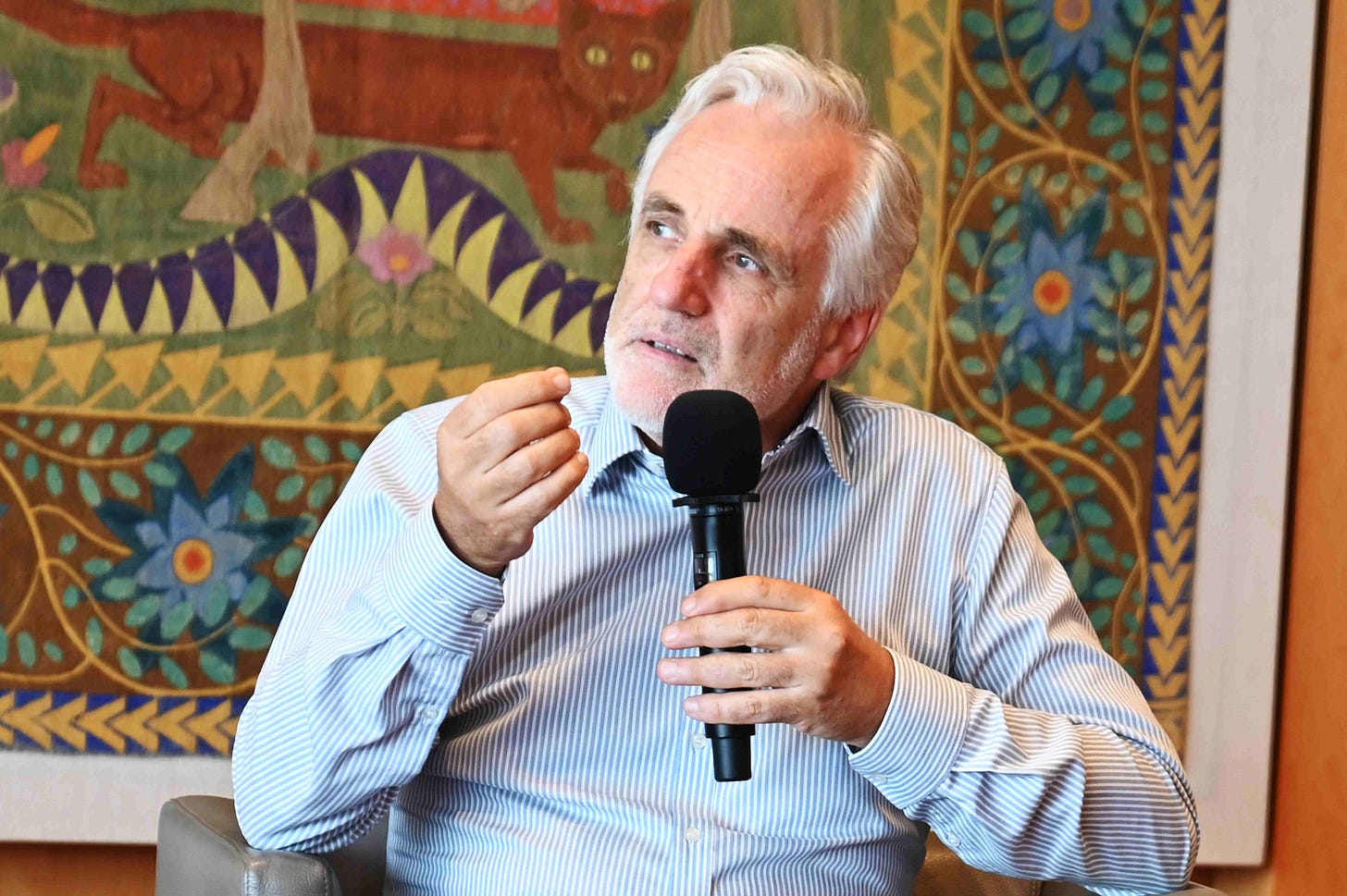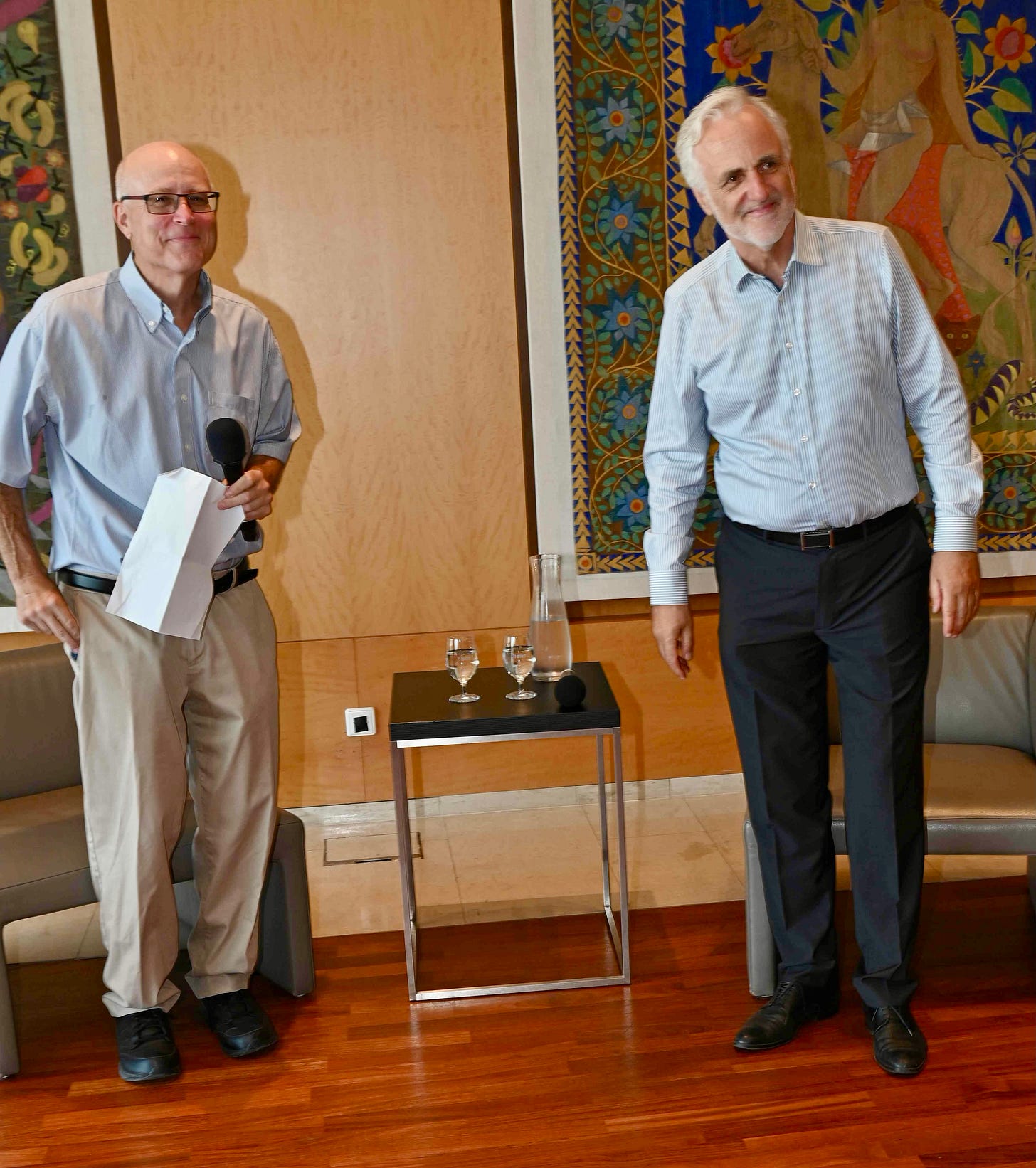Rainer Honeck occupies an interesting, and important, perch: he is a concertmaster of the Vienna Philharmonic. I have sat down with him at the Salzburg Festival, in a series of conversations hosted by the Salzburg Festival Society. It was a privilege to talk with Mr. Honeck. He rarely gives interviews. He lets his violin do the talking. He also claims he is not very good in English—but he can certainly express himself, as you will hear.
Mr. Honeck is a native Austrian, a member of a distinguished musical family. (His brother Manfred is the conductor of the Pittsburgh Symphony Orchestra.) The Honecks are distinguished, yes, but they were not born with silver spoons in their mouths. Far from it. They are musical “Horatio Algers,” I would say. They were privileged in the following respect: their father loved music, and immersed his children in it. (The Honecks’ mother died early on.)
The first question I ask Rainer Honeck is a basic one: What does a concertmaster do? The first thing he says is: Well, you have to be a good player. At least as good as the ones sitting behind you. Otherwise, you have problems.
I would think.
Over the years, I have talked with many violinists, and I usually ask, “Did you have models growing up? Violinists you especially admired and prized?” Often, they name Oistrakh or Heifetz (or both). (Younger ones tend to name Anne-Sophie Mutter.) Honeck says “Arthur Grumiaux,” the Belgian. Grumiaux was from a working-class family, but he was an aristocrat of the violin, an exemplar of taste.
I might note here that Rainer Honeck is a soloist and a chamber-music player, in addition to a concertmaster. He is a conductor, to boot.

What other questions? Well, Honeck plays a Stradivarius—does the quality of an instrument matter? Yes, all other things being equal. But the quality of the player is what really counts.
The Vienna Philharmonic is one mighty orchestra in the German-speaking world—and the world at large—and the Berlin Philharmonic is another. They are the big kahunas, you could say. What is the difference between their sounds?
Honeck says that the Vienna Phil is a “team-player orchestra.” They listen closely to one another, achieving unity. This comes, in part, from playing in the opera. (The Vienna Phil is the “pit band” for the Vienna State Opera, as well as a concert orchestra.) The Berlin Phil? They strive for unity too, of course—but they are also an orchestra of brilliant soloists.
Naturally, I ask Mr. Honeck about conductors he has worked under. He has very interesting things to say about Carlos Kleiber, Herbert von Karajan, and Leonard Bernstein, among others.
He has a lot to impart, and now I should stop typing and let you listen to Honeck himself. A rich musical resource.













